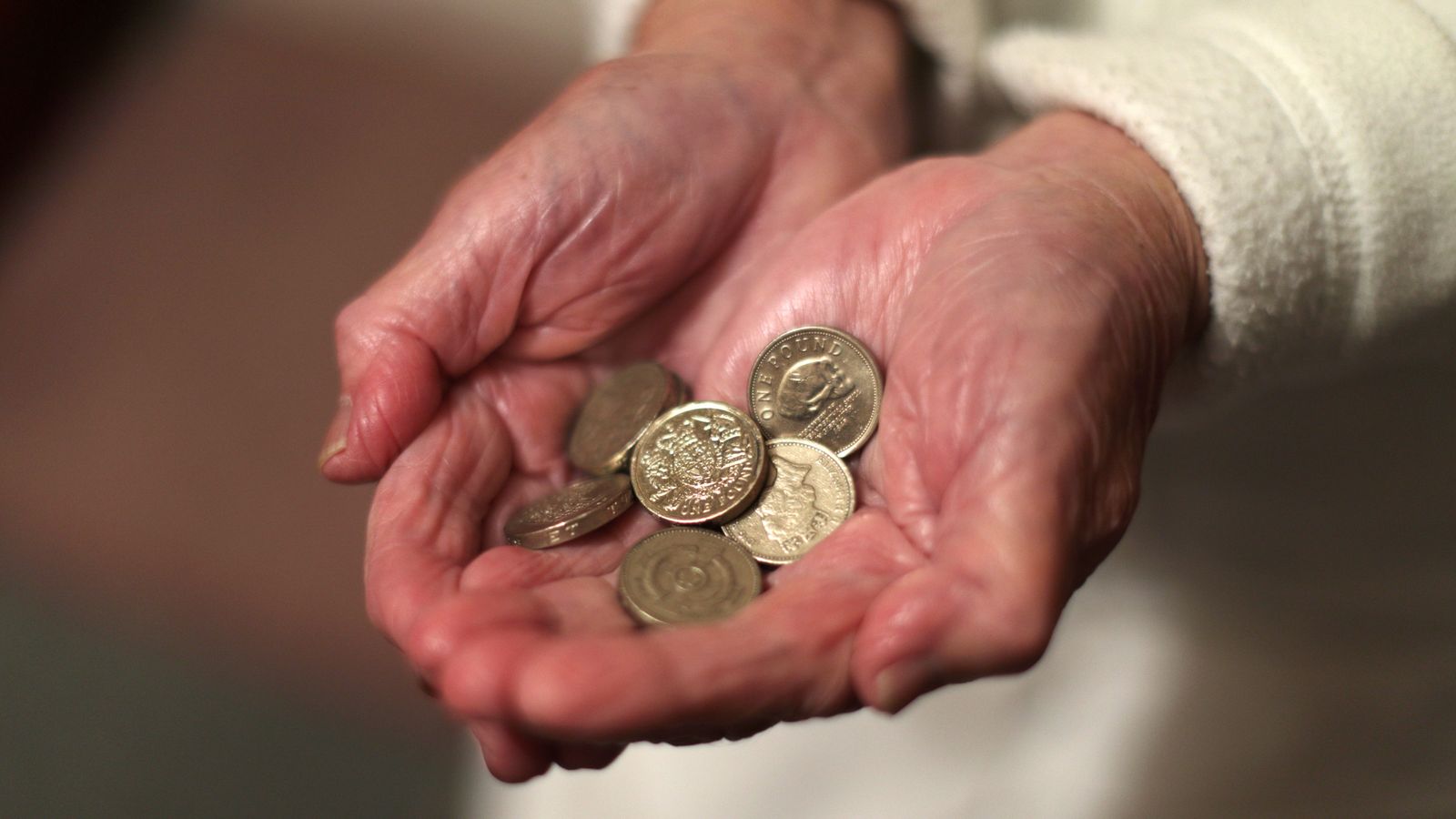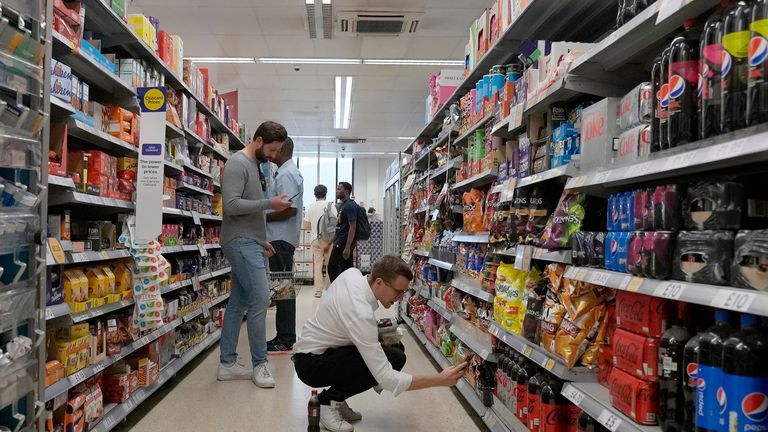Profits at UK firms yet to fully recover from pandemic despite growth


Profit at UK companies has grown slightly, the latest official figures show, suggesting widespread price hikes were not solely to increase profits.
There have been concerns this year about so-called “greedflation” – with companies accused of driving up inflation by increasing prices for profit.
However, new figures from the Office for National Statistics (ONS) show profit has yet to fully recover from the pandemic.
The rate of profitability for firms hasn’t gone back to 2019 levels, except for one quarter in 2020.
Company net returns grew to 9.9% from January to March this year, up by 0.1 percentage points from the 9.8% rate in the three months before, the final quarter of 2022.
Some industries, such as services and manufacturing, performed better than the overall profitability rate, the ONS data showed.
Read more:
Supermarket suppliers have ‘questions to answer’ on profiteering
The level of profit remains below the most recent highs of July to September 2014, when net returns topped 12.8%, and before the 2008 global financial crash, when the rate stood at 11.4% in the July to September quarter.
In the final months of 2019, before the COVID-19 lockdowns restricted many industries and consumer behaviours, the profitability rate was 10.3%.
Advertisement
Only once since – from July to September 2020 – has that high been reached again.
Please use Chrome browser for a more accessible video player
5:21
CMA boss on food prices and inflation
The overall data relates to private, non-financial companies and so excludes the likes of banks and companies listed on a stock exchange.
Profit growth was stronger in manufacturing, where the rate grew to 8.8%, up from 8.4% in the preceding quarter.
Similarly, service sector profits were up to 16.1%, an increase of 0.4 percentage points from the three months before.
The effects of falling energy costs can be seen in the drop in the net rate of returns for the oil and gas producers off the coast of the UK. Profitability dropped to the lowest value since April to June 2021, prior to Russia’s invasion of Ukraine.
In the three months prior the net rate of return for the sector was 12.7%.
Companies such as Shell and BP had booked record profits as energy prices reached new highs.
Some firms had been accused of passing on higher prices simply to boost profit margins, rather than because they face higher prices, a phenomenon known as “greedflation”.
Supermarket petrol providers were found, by the competition watchdog, to be charging more for petrol.
A Competition and Markets Authority investigation into fuel pricing found that retail margins at supermarkets widened by 6p per litre in the past year.
However, supermarkets were cleared of greedflation claims by the same regulator when it came to grocery prices.